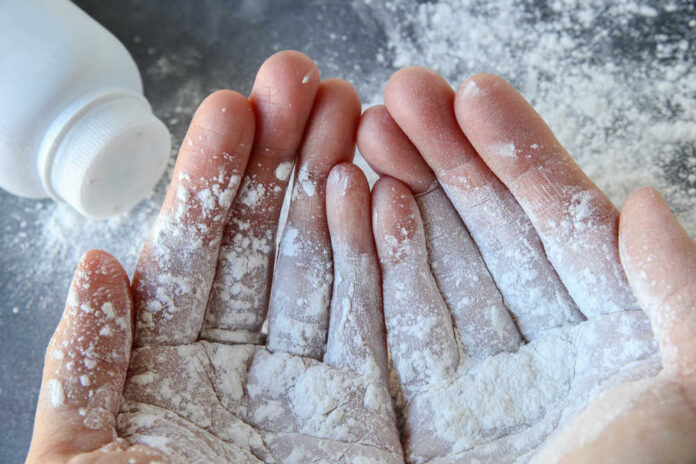
In May 2020, Johnson & Johnson Consumer Health announced that they were discontinuing their famous talc-based baby powder in the US and Canada.
On August 11, 2022, J&J announced that they will now be discontinuing their production and sale of talc-based baby powder worldwide, fully transitioning to cornstarch-based baby powder products.
They continue to maintain confidence in the safety of their talc-based product, pointing toward economic reasons for this decision. Their recent announcement states:
“We continuously evaluate and optimize our portfolio to best position the business for long-term growth. This transition will help simplify our product offerings, deliver sustainable innovation, and meet the needs of our consumers, customers, and evolving global trends.”
Lawsuits and Concerns
According to recent reports, Johnson & Johnson is facing 38,000 lawsuits related to claims linking their talc-based baby powder to cancer. Some cases against them have been won, and some have been lost—most are still pending.
Decades ago, concerns were raised about the potential hazards of talcum powder, including ovarian cancer and mesothelioma.
However, more recent studies have not found a clear link between talc powders and ovarian cancer.
The connection to mesothelioma is related to the fact that some talc deposits have been found to contain asbestos, a known carcinogen. As recently as October 2019, a voluntary recall was triggered when the FDA found trace amounts of asbestos in a tested J&J bottle. Further testing by J&J and two third-party could confirm this, finding no evidence of asbestos in that same test bottle.
Another worry is the potential for talc pneumoconiosis, a type of lung damage caused by the inhalation of talc particles.
Alternative Options
Baby powder has traditionally served a fundamental purpose: to keep babies’ skin free of diaper rash.
Many other products can perform this same function without the risk of harmful side effects.
Cornstarch-based powders are a safe and effective alternative to talc-based powders. You can find baby powders made from cornstarch or even use the same common cornstarch found in the baking aisle of your grocery store. Since this ingredient is very common in food items, you can feel assured that it is safe for use on your baby’s skin.
Similarly, you can use other starch powders such as arrowroot powder, tapioca starch, or rice starch.
If you want to avoid powders altogether, try using a moisture-absorbing cream or an aloe-based lotion.
Talk to your doctor or pediatrician about any concerns you may have and what might be best for your baby’s individual needs.






















